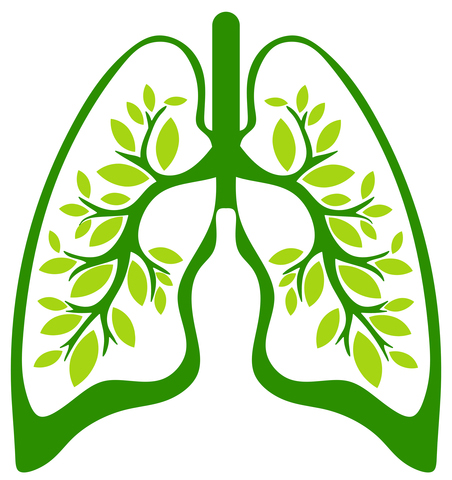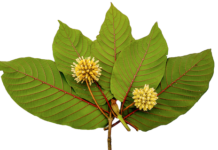by Dr. Craig A. Maxwell
Sometimes you feel like you just can’t get enough air into your lungs, even when you take as deep a breath as possible. In my 30 years of practice, I have seen breathing difficulties plague many of my patients, resulting in chronic headaches, anxiety, poor digestion, and memory problems. When you improve your lung health, you improve your overall health. Breathe better with these natural tips.
Breathing Difficulty Possibly Linked to Malnutrition
Healthy lungs are vital to the function of the rest of your organs and systems. It is only when you are able to properly and fully take in oxygen and expel carbon dioxide that you are able to convert nutrients from food into usable energy. Most people are not aware of how closely breathing and digestion are connected. If you have chronic digestive problems due to poor lung function, you may be malnourished despite a healthy diet.
Natural Solutions to 3 Common Causes of Breathing Difficulty
- Anxiety
Sometimes, there is no immediate physiological cause of breathing difficulties. In other words, there’s nothing medically wrong with your respiratory system. Rather, you have simply forgotten how to breathe. When you’re in a continual state of anxiety, muscular tension doesn’t limit itself to your neck and back; it can also uncomfortably constrict the muscles of your lungs and diaphragm. This can cause you to take very shallow breaths, which, in turn, can make you feel even more tense.
For my patients with anxiety, I often recommend adding a magnesium supplement. Magnesium deficiency is the most common mineral deficiency in the United States. Without adequate levels of this mineral, your nervous system cannot function properly. You may experience panic attacks, tremors, insomnia, mood swings, and restless legs syndrome.
I also recommend Dr. Andrew Weil’s natural breathing techniques to help ease anxious feelings and reconnect with the moment. These techniques will not only improve your breathing naturally, they can help prevent you from succumbing to debilitating panic attacks.
- Allergies/Asthma
Asthma causes both chronic and acute inflammation in the bronchial tubes, which constricts breathing. If stress or allergen exposure bring on a sudden asthma attack, it can also bring on a panic attack. While over-the-counter allergy drugs and prescription asthma inhalers can temporarily mitigate symptoms, they do nothing to treat the underlying cause of these conditions.
This is why I strongly recommend discovering the exact allergic triggers that cause your breathing difficulties. You could use elimination diets to try to discover which foods trigger your allergies and stay indoors during the spring and summer, but this can be a very frustrating way to live.
The Alcat Comprehensive Wellness 1-Kit is your one-stop solution for discovering just exactly what your body is reacting so strongly to. It tests for 200 food intolerances, 10 food additives, 10 food colorings, 10 environmental chemicals and 20 molds that can activate your immune system and restrict your ability to breathe.
I also strongly recommend an anti-inflammatory diet for asthma and allergies. This means plenty of organic produce, nuts, seeds, non-gluten grains, meat, poultry, wild-caught fish, and healthy fats like butter and coconut oil. Make liberal use of turmeric, ginger, onion, and garlic as each ease inflammation while stabilizing immune function.
I’m also a strong advocate for the use of probiotics for allergies. Most cases of allergic rhinitis are linked to a condition called ‘leaky gut syndrome’. In a patient with leaky gut syndrome, the lining of the gut is more porous than it should be. This allows undigested food particles, allergens, and pathogens to leak into the bloodstream, triggering an immune response.
An investment in an air purifier can also help ease allergic and asthma symptoms and help you breathe easier.
- Progressive Lung Disease
Chronic obstructive pulmonary disease, also diagnosed as emphysema and chronic bronchitis, is the third-leading cause of death in the United States. The air sacs of a healthy person are stretchy and pliable, allowing for full and effortless breathing.
In a person with COPD however, the air sacs behave more like an old rubber band. Taking a deep breath can be so difficult, it feels as though you have an elephant sitting on your chest. To make matters worse, progressive lung disease triggers the immune system to fill the lungs with mucous, further constricting breathing.
- Quit Smoking
If you have COPD and are still smoking, I strongly recommend taking steps to quit. This will significantly slow down the loss of your remaining lung tissue.
- Improve Your Diet
Eat an anti-inflammatory diet. This means plenty of organic produce, nuts, seeds, non-gluten grains, meat, poultry, wild-caught fish, and healthy fats like butter and coconut oil.
- Add a Vitamin D3 Supplement
According to studies, high doses of vitamin D3 (3,000-5,000 IUs) modulate your immune system, inhibit inflammatory response, and improve respiratory muscle strength.

- Save Your Lungs with N-Acetyl Cysteine (NAC)
A study published by the Journal of Pulmonary Pharmocology and Therapeutics[1. http://www.ncbi.nlm.nih.gov/pubmed/15607126], 600 milligrams of N-Acetyl Cysteine (NAC), a precursor to glutathione, given twice daily for two months reduced the antioxidant burden in the airways of subjects with stable COPD. Another experimental clinical study showed that NAC inhibits symptoms and lung function decline.[2. http://www.ncbi.nlm.nih.gov/pmc/articles/PMC2707813/]
More Natural Breathing—Good Tips
- Respirator and Non-Toxic Cleaning Products
When you clean or paint your home, be sure to wear a respirator to protect your lungs. The less toxic irritants in your lungs, the better their overall function. (This goes double if you have preexisting lung disease). If you ordinarily use commercial cleaning products, trade them in for organic cleaning products or, better yet, make your own. A combination of warm water, baking soda, white vinegar, and castile soap can safely clean just about any surface in your home.
- Get Plenty of Fresh Air
If you work in an office 5 days a week, some of your breathing difficulties could be the result of sick building syndrome. Allergies to indoor mold often cause chronic sinus problems, a dry hacking cough, shortness of breath, and chronic fatigue. Take a walk during your lunch break when weather permits and invest in a few naturally air-purifying plants such as an aloe or peace lily.
- Improve Your Posture
Many of us don’t realize how poor our posture is or how connected it is to proper breathing. When you’re slumped over, it can be difficult to take a deep, cleansing breath. Do gentle stretching exercises to naturally open your chest and rib cage and make a conscious effort to keep your shoulders back and your spine straight whenever possible.
Better breathing is your key to lasting wellness. When you breathe better, you feel better, and everything else falls into place!
Read More:








